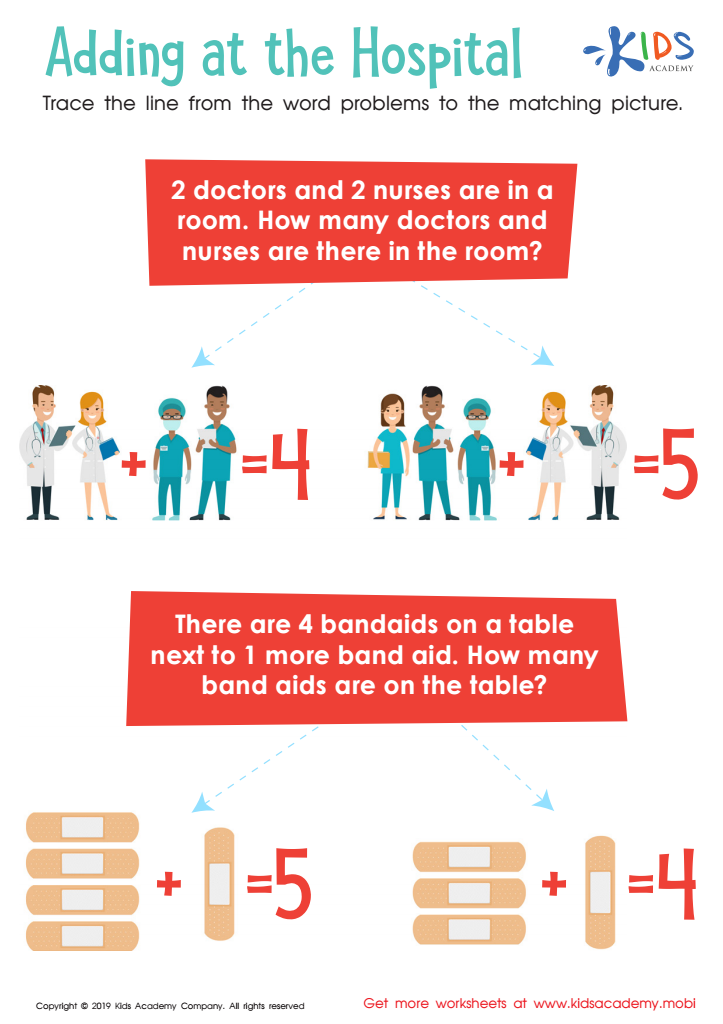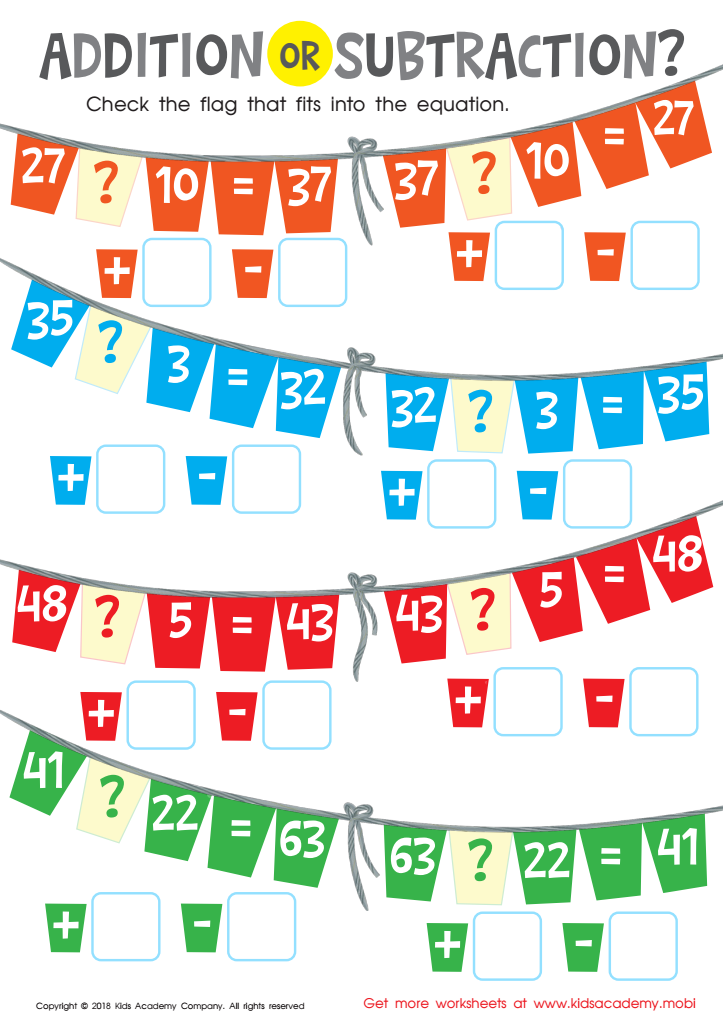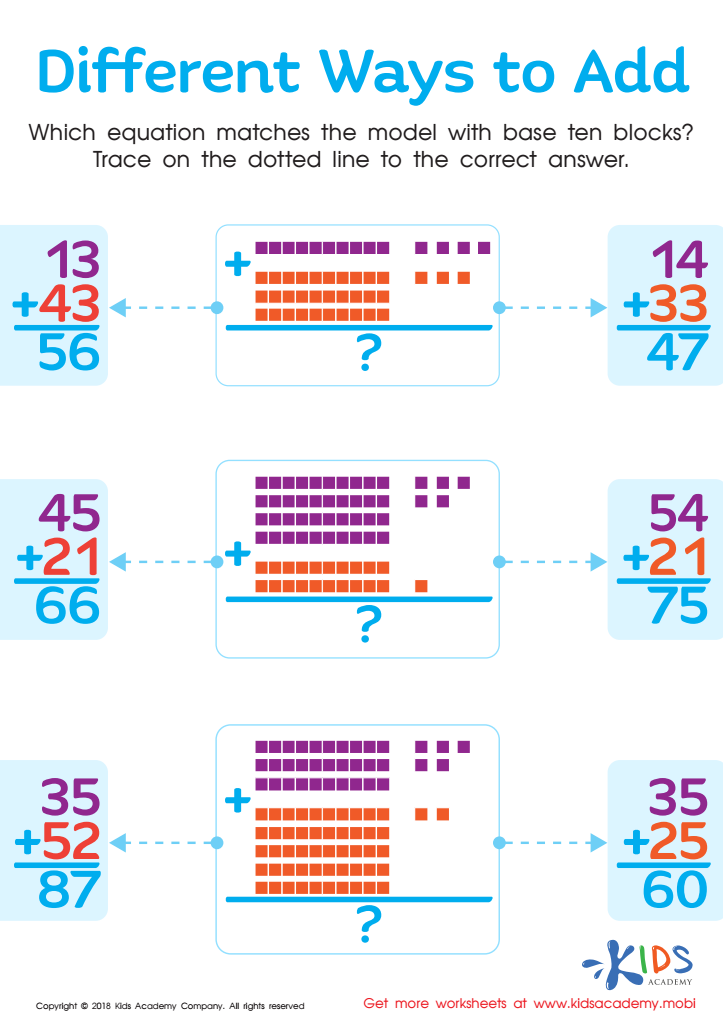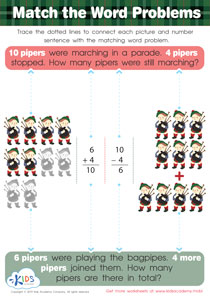Addition skills Normal Addition Worksheets for 6-Year-Olds
5 filtered results
-
From - To
Enhance your 6-year-old's addition skills with our engaging Normal Addition Worksheets! Tailored specifically for young learners, these worksheets feature colorful illustrations and age-appropriate exercises that make learning fun. Your child will practice basic addition concepts by solving problems tailored to their cognitive level, promoting both understanding and confidence in math. From simple one-digit equations to beginner-friendly word problems, these resources encourage critical thinking and problem-solving abilities. Explore our extensive collection, designed to support early math development while keeping kids entertained. Perfect for home or classroom use, our Normal Addition Worksheets will help your child build a solid foundation in mathematics!


7 Continents and 7 Seas Worksheet


Adding Flower Petals Worksheet


Adding at the Hospital Worksheet


Addition or Subtraction? Worksheet


Different Ways to Add Worksheet
Addition skills are foundational for cognitive development in six-year-olds, making them essential for both parents and teachers. At this age, children are beginning to grasp numerical concepts, and mastering normal addition lays the groundwork for advanced math skills in the future. Understanding addition helps children develop critical thinking and problem-solving abilities, allowing them to tackle more complex mathematical problems as they progress in their education.
Additionally, strong addition skills boost a child's confidence. When children can perform simple addition problems, they are more likely to engage actively in classroom activities and enjoy learning. Mastery of these basic skills encourages a love for mathematics and bolsters overall academic success.
Beyond academics, addition skills are vital for everyday life. Kids use addition in real-world scenarios such as counting change, understanding time, and measuring ingredients for cooking. Thus, when parents and teachers emphasize normal addition, they are not only supporting learning in the classroom but also equipping kids with practical skills for daily living.
Ultimately, fostering strong addition skills in early education cultivates a positive learning environment; encourages curiosity; builds a strong mathematical foundation; and prepares children for the future, making this a priority for both educators and families.
 Assign to My Students
Assign to My Students















